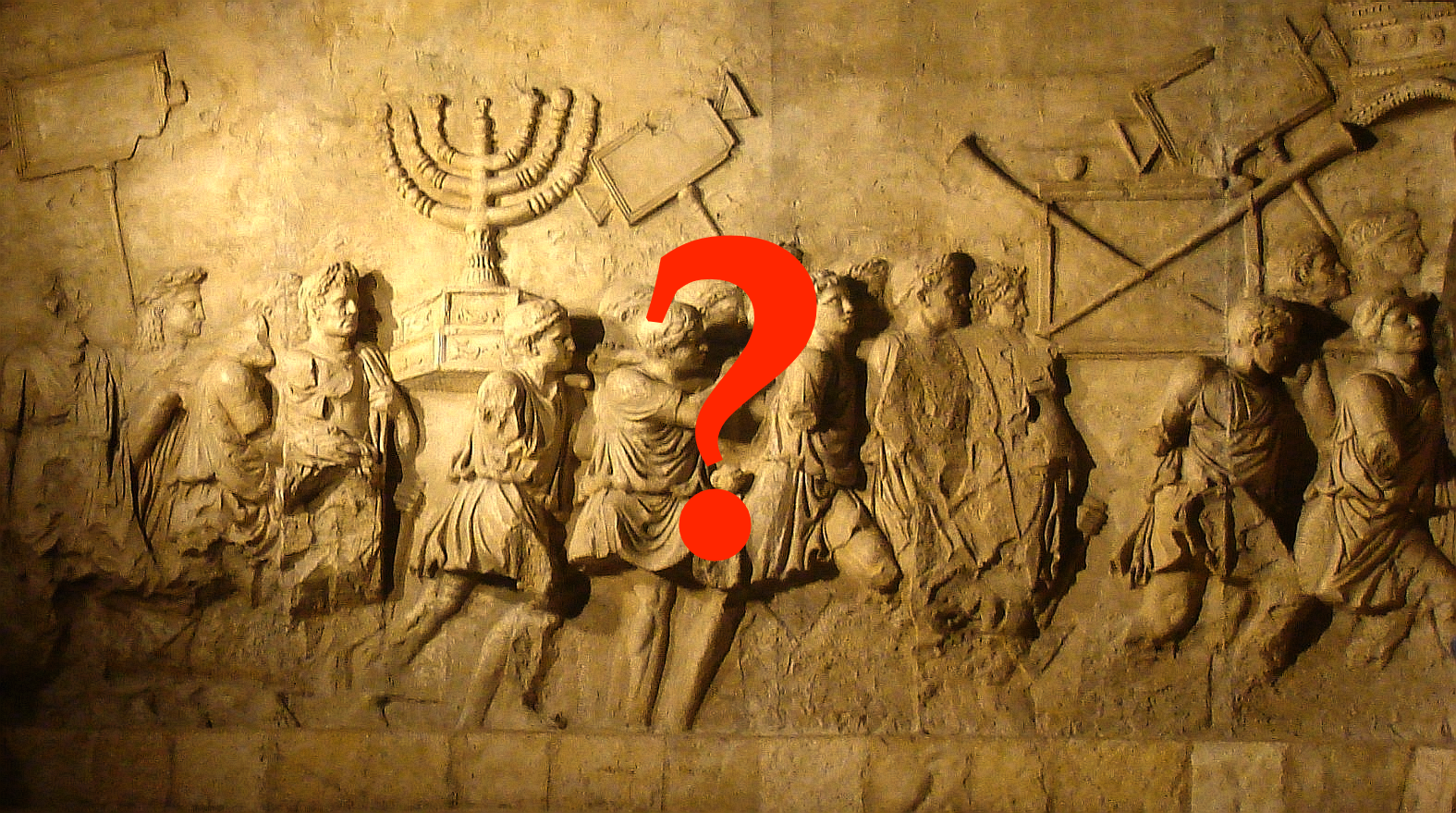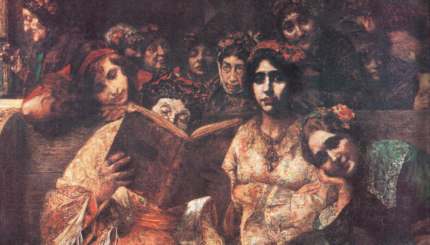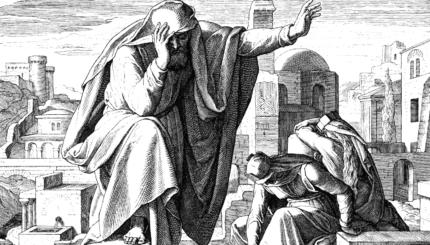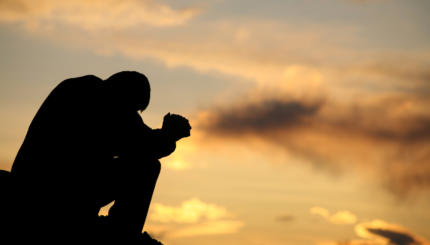Tisha B’ is the major day of communal mourning in the Jewish calendar commemorating the destruction of the First and Second Temples in Jerusalem. Here are some answers to commonly asked questions.
- What calamities does Tisha B’Av commemorate?
Traditionally, both Temples were destroyed on Tisha B’Av. The first Temple was destroyed by the Babylonians in 586 BCE, and the second by the Romans in 70 CE. But other calamities have also befallen the Jewish people on or near this date. King Edward I signed an edict compelling all Jewish subjects to leave England just before Tisha B’Av in 1290 (that expulsion would last 350 years). WWI also broke out just a few days before Tisha B’Av. But beyond these, Tisha B’Av is traditionally a day to commemorate many other tragedies that have befallen the Jewish people including the Crusades, the pogroms, and the Holocaust.
- Why this day in particular?
Was it a coincidence that both Temples were destroyed on the 9th of Av, a day that happens to fall at the blazingly hot height of summer? As Midrash (Jewish legend) explains it, the Temples were destroyed on the 9th of Av because it was on that day that the spies, send out by Moses to reconnoiter the land of Israel in preparation for the Israelites to enter, brought back a negative report of the Promised Land.

Help us keep Jewish knowledge accessible to millions of people around the world.
Your donation to My Jewish Learning fuels endless journeys of Jewish discovery. With your help, My Jewish Learning can continue to provide nonstop opportunities for learning, connection and growth.
- What can’t Jews do on Tisha B’Av?
Traditionally, Jews fast – meaning they take no food or drink from sunset to sunset. Jews also do not wear leather or other luxurious garments, do not anoint themselves with make-up or creams, and abstain from intimate relations.
- What are the major practices of Tisha B’Av?
Jews sit on the floor in the dark (usually with only candlelight to read) and chant the Book of Lamentations (Eicha).
- Is this a day when Jews avoid work, like Shabbat or Rosh Hashanah?
No, there is no restriction on work on Tisha B’Av, as long as the tone of the day remains serious and mournful.
- If I am not near a synagogue, how can I observe Tisha B’Av on my own?
Although there is great value in observing Jewish holidays in community, there are many ways to bring the thoughts and experiences of Tisha B’Av into your day even if you are not near one. You can fast and refrain from both forbidden and enjoyable activities, read Lamentations, and say the kinnot (religious poetic elegies). You can reflect on contemporary calamities that have befallen the Jewish people, including the rise of bigotry and anti-Semitism. Tisha B’Av is also a good day to be moved to actions that work toward repairing the world. It would be appropriate to make a charitable donation, write a senator, or set aside some time to volunteer where you are needed.
If you are not near a synagogue, but have Jewish friends in the area, you can invite them to join you in some of these activities. There are also some online Tisha B’Av experiences now, including this one.
- Why do we fast on Tisha B’Av?
There are several reasons. First, fasting fosters a longing that is key to the experience of Tisha B’Av, which is not just about remembering the destruction but viscerally feeling some of that experience. Second, fasting connects Jews to their history, to the generations going back now 2,000 years who have done the same — and also to future generations who will also fast. It is powerful to feel that one is doing the same thing as one’s ancestors and those yet to come.
- But mourners don’t fast. In fact, people bring mourners lots of food. So why do we fast to simulate mourning?
Tisha B’Av is different from mourning a loved one — especially because most people do not enter the holiday having recently lost someone. Mourners generally don’t feel like eating, so friends bring them food to help them feel stronger. On Tisha B’Av, we are in something of the opposite situation. We are trying to put ourselves in a temporary state of anxiety, desolation, and despair. Depriving ourselves of food is one way to put ourselves in an active state of discomfort so we can connect with tragedies of our past.
- Are we really supposed to be nothing but gloomy?
It’s true that we are meant to experience the mourning and desolation our ancestors did when they were forced into exile. But the prophet Isaiah also criticized Israel for fasting without committing to goodness and kindness:
No, this is the fast I desire:
To unlock fetters of wickedness,
And untie the cords of the yoke To let the oppressed go free;
To break off every yoke. It is to share your bread with the hungry,
And to take the wretched poor into your home;
When you see the naked, to clothe him,
And not to ignore your own kin. (Isaiah 58:6-7)
It is totally appropriate to take energy from the pain of historical remembrance and do something with it that’s positive in the world.
- How can I talk about Tisha B’Av with my children?
You can start by explaining what the Temple in Jerusalem was and that it was the center of Jewish life and practice for hundreds of years. Then, in an age-appropriate way, you can also talk about how some people thought that Jews should not be allowed to practice their Judaism in the way they wanted to. You can also talk about the ways that Jerusalem generally, and the site of the Temple specifically, are still important to Jews today (for instance, we face the Temple Mount to pray). You can also talk about goals for rebuilding whether, for you, that means rebuilding the Temple or working toward a messianic era of love and kindness.
- Does the Vatican really have the artifacts that were stolen from the Temple by the Romans 2,000 years ago? Did Israel really ask for them back.
We don’t know if the Vatican has those items or if they have been lost to history, perhaps melted down or destroyed. But we do know that they were stolen: the menorah is clearly depicted in the Arch of Titus (pictured above) which celebrates the Romans bringing back spoils from Jerusalem. Israeli president Moshe Katzav did ask for them to be returned.
- Why don’t we wear Tallit and Tefillin on the morning of Tisha B’Av?
On Tisha B’Av, we simulate the Jewish rupture from God. Since Tallit and Tefillin connect us to God, we don’t wear them so that we feel our disconnection more deeply. In the afternoon, however, when we are starting to reconnect, we do wear these ritual garments again.



